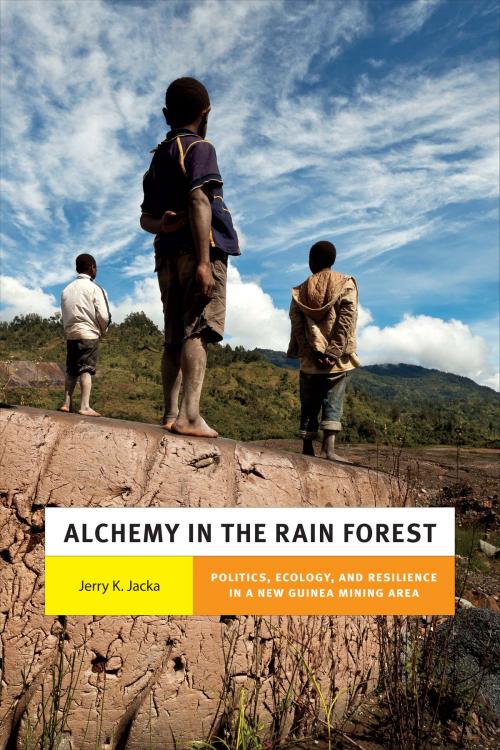Alchemy in the Rain Forest
Politics, Ecology, and Resilience in a New Guinea Mining Area
Nonfiction, Science & Nature, Science, Biological Sciences, Environmental Science, Social & Cultural Studies, Social Science, Anthropology| Author: | Jerry K. Jacka | ISBN: | 9780822375012 |
| Publisher: | Duke University Press | Publication: | October 23, 2015 |
| Imprint: | Duke University Press Books | Language: | English |
| Author: | Jerry K. Jacka |
| ISBN: | 9780822375012 |
| Publisher: | Duke University Press |
| Publication: | October 23, 2015 |
| Imprint: | Duke University Press Books |
| Language: | English |
In Alchemy in the Rain Forest Jerry K. Jacka explores how the indigenous population of Papua New Guinea's highlands struggle to create meaningful lives in the midst of extreme social conflict and environmental degradation. Drawing on theories of political ecology, place, and ontology and using ethnographic, environmental, and historical data, Jacka presents a multilayered examination of the impacts large-scale commercial gold mining in the region has had on ecology and social relations. Despite the deadly interclan violence and widespread pollution brought on by mining, the uneven distribution of its financial benefits has led many Porgerans to call for further development. This desire for increased mining, Jacka points out, counters popular portrayals of indigenous people as innate conservationists who defend the environment from international neoliberal development. Jacka's examination of the ways Porgerans search for common ground between capitalist and indigenous ways of knowing and being points to the complexity and interconnectedness of land, indigenous knowledge, and the global economy in Porgera and beyond.
In Alchemy in the Rain Forest Jerry K. Jacka explores how the indigenous population of Papua New Guinea's highlands struggle to create meaningful lives in the midst of extreme social conflict and environmental degradation. Drawing on theories of political ecology, place, and ontology and using ethnographic, environmental, and historical data, Jacka presents a multilayered examination of the impacts large-scale commercial gold mining in the region has had on ecology and social relations. Despite the deadly interclan violence and widespread pollution brought on by mining, the uneven distribution of its financial benefits has led many Porgerans to call for further development. This desire for increased mining, Jacka points out, counters popular portrayals of indigenous people as innate conservationists who defend the environment from international neoliberal development. Jacka's examination of the ways Porgerans search for common ground between capitalist and indigenous ways of knowing and being points to the complexity and interconnectedness of land, indigenous knowledge, and the global economy in Porgera and beyond.















